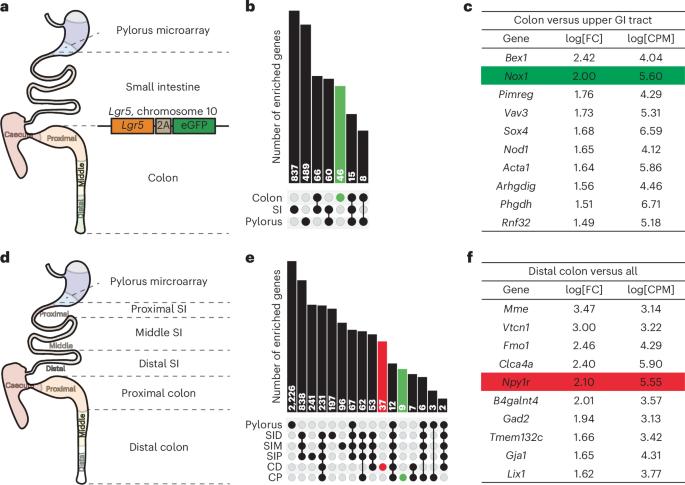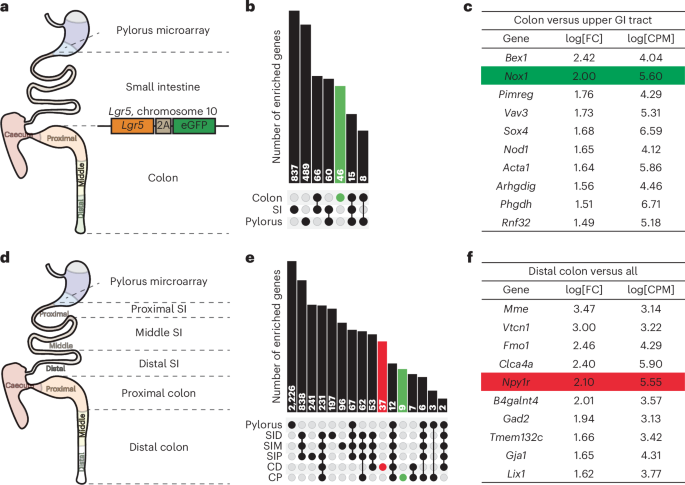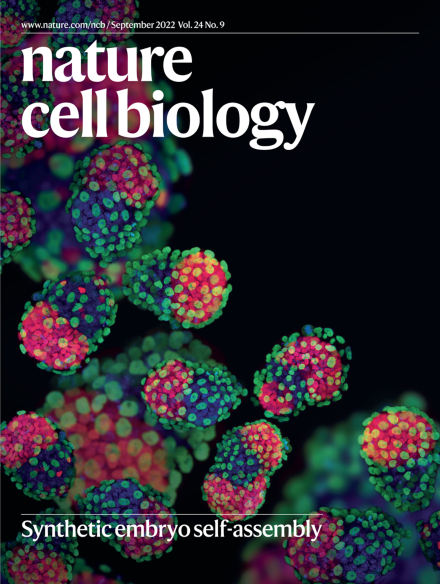NOX1 and NPY1R mark regional colon stem cell populations that serve as cancer origins in vivo
IF 19.1
1区 生物学
Q1 CELL BIOLOGY
引用次数: 0
Abstract
Current colorectal cancer mouse models either lack colon specificity, limiting progression towards more advanced disease, or preclude evaluation of resident stem cells as cancer origins. Here we report the identification of NOX1 and NPY1R as cell-surface markers enriched in LGR5+ stem cells predominantly within the caecum and exclusively within the middle and distal colorectum, respectively. Selective dysregulation of Wnt signalling in NOX1+ or NPY1R+ stem cells using CreERT2 mouse lines drives colon cancer initiation, predominantly within the caecum and rectum respectively, establishing these stem cell populations as important sources of colon cancer. Selective conditional activation of Wnt signalling and oncogenic Kras in combination with loss of TRP53 in these stem cell compartments resulted in the development of advanced, invasive cancers. This study establishes CreERT2 drivers as valuable tools for studying stem cell contributions to colon cancer. Gasnier et al. identify NOX1 and NPY1R as markers of colon stem cells within the mouse caecum and the middle and distal colorectum, respectively. These stem cells contribute to the initiation of invasive colon tumours in mice.


NOX1和NPY1R标记了在体内作为癌症起源的区域结肠干细胞群
目前的结直肠癌小鼠模型要么缺乏结肠特异性,限制了向更晚期疾病的进展,要么排除了对驻留干细胞作为癌症起源的评估。在这里,我们报告了NOX1和NPY1R作为细胞表面标记物在LGR5+干细胞中富集,主要存在于盲肠中,只存在于结肠中部和远端。使用CreERT2小鼠系,NOX1+或NPY1R+干细胞中Wnt信号的选择性失调驱动结肠癌的发生,主要分别发生在盲肠和直肠内,确立了这些干细胞群作为结肠癌的重要来源。Wnt信号和致癌Kras的选择性条件激活以及这些干细胞区室中TRP53的缺失导致晚期侵袭性癌症的发展。这项研究确立了CreERT2驱动因子作为研究干细胞对结肠癌的贡献的有价值的工具。
本文章由计算机程序翻译,如有差异,请以英文原文为准。
求助全文
约1分钟内获得全文
求助全文
来源期刊

Nature Cell Biology
生物-细胞生物学
CiteScore
28.40
自引率
0.90%
发文量
219
审稿时长
3 months
期刊介绍:
Nature Cell Biology, a prestigious journal, upholds a commitment to publishing papers of the highest quality across all areas of cell biology, with a particular focus on elucidating mechanisms underlying fundamental cell biological processes. The journal's broad scope encompasses various areas of interest, including but not limited to:
-Autophagy
-Cancer biology
-Cell adhesion and migration
-Cell cycle and growth
-Cell death
-Chromatin and epigenetics
-Cytoskeletal dynamics
-Developmental biology
-DNA replication and repair
-Mechanisms of human disease
-Mechanobiology
-Membrane traffic and dynamics
-Metabolism
-Nuclear organization and dynamics
-Organelle biology
-Proteolysis and quality control
-RNA biology
-Signal transduction
-Stem cell biology
 求助内容:
求助内容: 应助结果提醒方式:
应助结果提醒方式:


